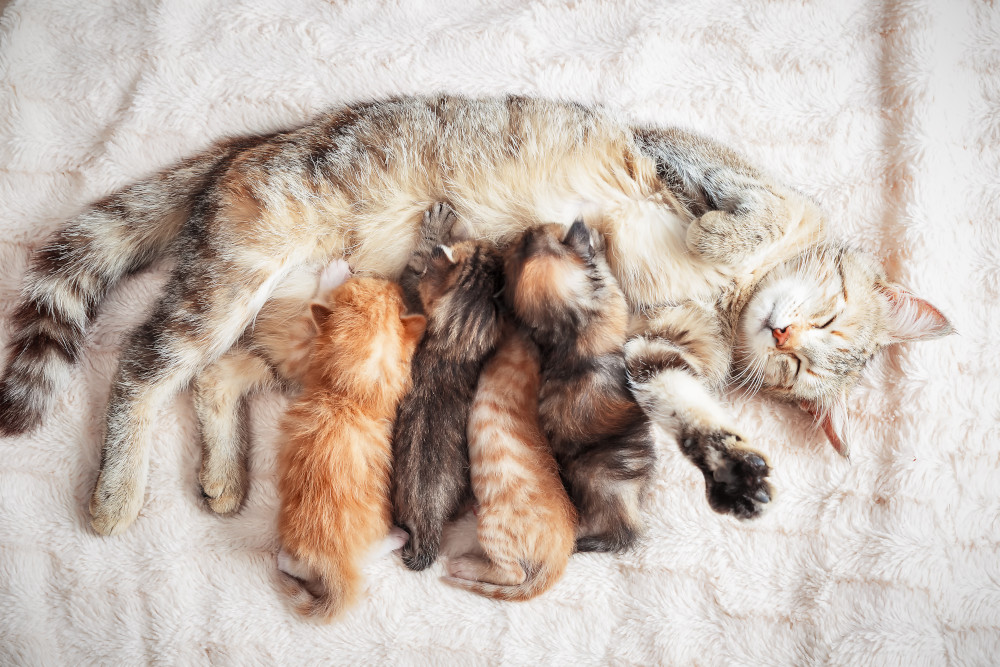How do I care for newborn kittens and their mother?
The RSPCA strongly recommends that you seek veterinary advice to ensure that your cat and kittens receive the best care possible.
Following birth, newborn kittens and their mother are very vulnerable. Risks include post-birthing complications, infections, eclampsia (low calcium), hypothermia (low body temperature), hypoglycaemia (low blood sugar), and dehydration (low fluids) [1, 2].
Kittens and their mother need extra special care, including appropriate environmental conditions, proper nutrition, adequate socialisation, vaccinations, desexing, microchipping, worming and external parasite prevention.
Environmental conditions
Appropriate environmental conditions (e.g., temperature, air flow, good hygiene) are essential for the health of newborn kittens. Mothers and their kittens should also be kept separate from other cats to give them peace and quiet, and protect them from infections [1].

Nutrition
The first milk (colostrum) is vital for the health and development of newborn kittens, and they must drink it as soon as possible after birth. Ideally, kittens should continue to drink milk until weaning at about eight weeks of age. Where possible allow the kittens to wean naturally and introduce solid food slowly.
Nursing mothers need to be able to eat as much as they want because milk production requires a lot of energy. Feed them food designed for nursing mothers.
Socialisation
Socialisation involves exposing an animal to a range of experiences to help them prepare for and cope with different situations, interactions, and environments. Socialisation is essential to ensure your kittens grow up into well-adjusted adults who relate well to others and the world around them. Familiarise your kittens with gentle handling and stroking and allow them to interact calmly and positively with their siblings and mother, as well as different people and objects.
Veterinary care
Talk to your veterinarian about vaccinations, microchipping, worming and external parasite prevention, and desexing of the kittens and their mother. The RSPCA advocates for desexing to reduce the population of unwanted cats and kittens in the community.
For more information about how to care for newborn kittens and their mother, consult your veterinarian.
References
Was this article helpful?
This work is licensed under a Creative Commons Attribution-NonCommercial-NoDerivatives 4.0 International License.


